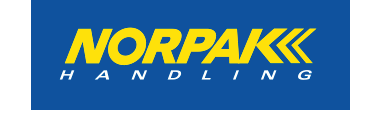 Norpak offers versatility with conveyor belts in PVC, polyurethane, plastic, and metal
Norpak offers versatility with conveyor belts in PVC, polyurethane, plastic, and metal
July 3, 2024 REDWIRE is news you can use from leading suppliers. Powered by FRASERS.
Posted by Norpak Handling Limited
Norpak Handling provides conveying products and complete turn-key systems to suit your requirements and solve your probl... Read more
Subscribe
Free REDWIRE e-newsletter

Conveyor belts are available from Norpak.
Norpak Handling Ltd. is trusted by Canadian businesses for its wide selection of material-handling equipment, including not just conveyors, but conveyor belts too. These solutions come in a broad range of designs for various niches in different sectors. The two primary categories are general-purpose and specialty belts, made of PVC, polyurethane, plastic, and metal. To get the most from their conveyor systems, customers should put careful thought into selecting specific models of conveyor belts, making sure the belts are optimized for unique requirements in their plants or warehouses.
Ideal for vulnerable items
Using the right conveyor belt for an application is crucial because conveyor performance must be optimized to suit manufacturing goals and requirements. For example, PVC belts are popular choices, as they are lightweight, durable, extremely versatile, simple to use, and resistant to wear. As well, PVC is one of the most sanitary materials for conveyor belts, since it is non-absorbent and liquid-resistant. For this reason, manufacturing facilities frequently use PVC belts to transport food, in addition to pharmaceuticals, beauty solutions, and other sensitive items that are vulnerable to spills.
Polyurethane belts resist oil and abrasive substances, with electricity that offers strong impact and tear resistance too. Another benefit of polyurethane belts from Norpak: resistance to extreme weather conditions. Although more expensive than PVC belts are, polyurethane belts remain popular in many sectors.
Plastic belts are made of moulded thermoplastic pieces that are interlocked in a chain-like design that increases flexibility. These belts also add strength and durability with their solid surfaces, and they resist many types of harmful substances. A broad range of industries use plastic belts to transport pallets or bulkier objects.
Metal conveyor belts are typically made from metal wiring, woven into specific patterns that make up various belt types, including diamond mesh, trapezoid mesh, ball mesh, and u-chain mesh. Different materials are available for unique requirements, like carbon steel and stainless steel. A key advantage of metal conveyor belts is their high temperature, wear, and corrosion resistance; customers trust them in annealing applications and for moving glass items or machines.
To learn more, contact Norpak.
Share
Posted by Norpak Handling Limited
Norpak Handling provides conveying products and complete turn-key systems to suit your requirements and solve your probl... Read more
